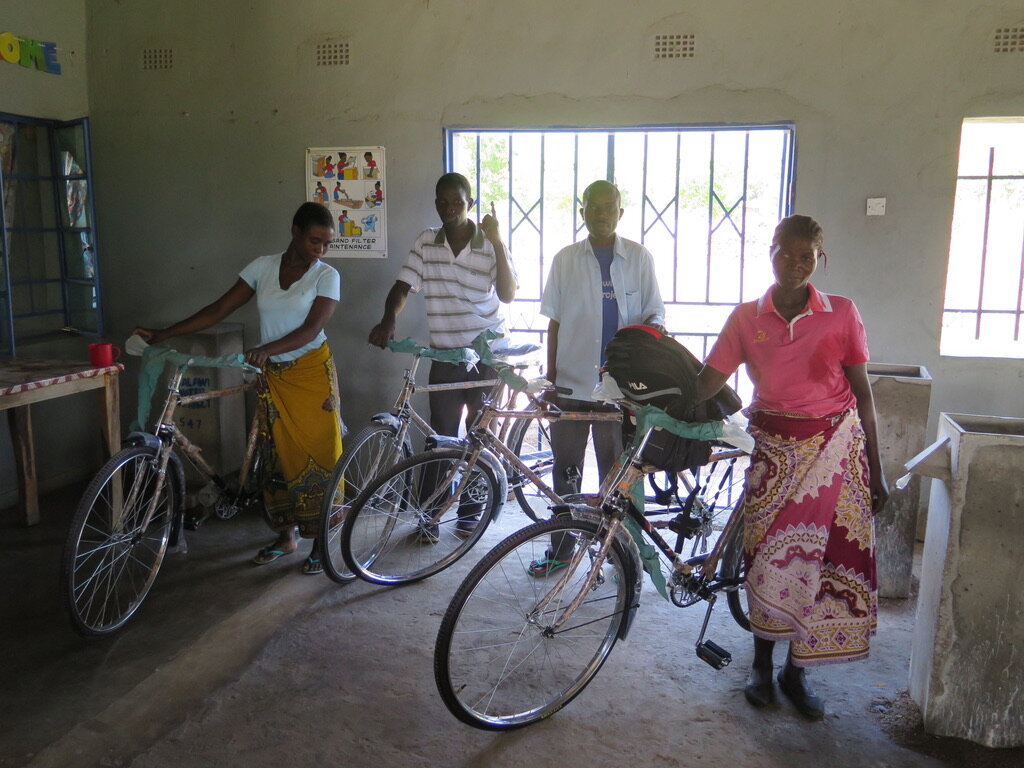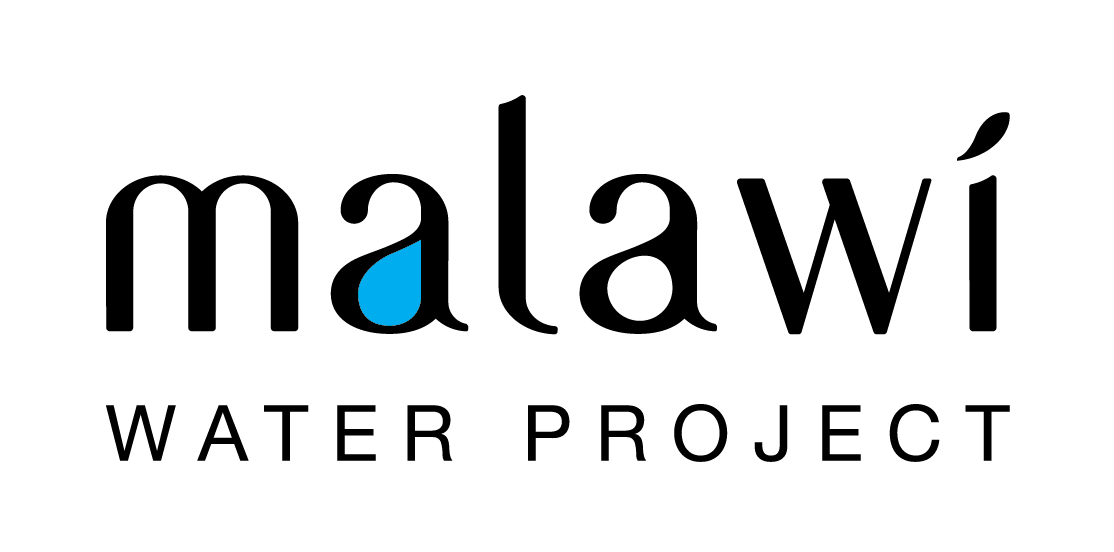Annual Visit to Malawi
A Project Update from Helen Timoffee
Each year usually in May, I travel to visit the Project to give support to the teams and review how things are going. In early May my husband Jerry accompanied me to Malawi to meet with Sarah (our Country Director) and our teams, in order to review the Project and survey the damage done by recent flooding.
Many people in southern Malawi had been affected by the flooding. The water had receded so people were beginning to move back to their villages to start again. We saw areas where crops were completely washed away and mud huts had collapsed. The lodge where we were staying in Blantyre also provided accommodation for the UNICEF staff who were responsible for coordination of the flood relief efforts being done by many of the large non-governmental organizations (NGOs). We spoke with the Coordinator of UNICEF who will be in Malawi for the next two months. The NGOs had set up large camps with tents, food and water, as well as, portable toilets. Now, the challenge for people affected by the flooding is to return to their villages, start rebuilding their homes and replanting their crops. UNICEF will be closing the camps soon. We met with one of their staff, a structural engineer who is assessing the damage done to schools and other public buildings affected by the floods. It certainly takes a coordinated effort to provide the most effective disaster relief response.We visited some of the villages affected by the flooding and where Biosand Water Filters had been installed by the Malawi Water Project. These villagers did not live near the camps, so they stayed in their villages and have not had assistance from the large NGOs. It is amazing to see the resilience of these families. They have already replanted their crops and are in the process of rebuilding their houses. In order to help our beneficiaries get back on their feet, we gave each family a water bucket, a bag of maize flour, cooking oil, salt and sugar as well as a blanket. Our project team will also reinstall or replace their Biosand Filters as needed. The families are very thankful for the help you have given.
The lodge where we were staying in Blantyre also provided accommodation for the UNICEF staff who were responsible for coordination of the flood relief efforts being done by many of the large non-governmental organizations (NGOs). We spoke with the Coordinator of UNICEF who will be in Malawi for the next two months. The NGOs had set up large camps with tents, food and water, as well as, portable toilets. Now, the challenge for people affected by the flooding is to return to their villages, start rebuilding their homes and replanting their crops. UNICEF will be closing the camps soon. We met with one of their staff, a structural engineer who is assessing the damage done to schools and other public buildings affected by the floods. It certainly takes a coordinated effort to provide the most effective disaster relief response.We visited some of the villages affected by the flooding and where Biosand Water Filters had been installed by the Malawi Water Project. These villagers did not live near the camps, so they stayed in their villages and have not had assistance from the large NGOs. It is amazing to see the resilience of these families. They have already replanted their crops and are in the process of rebuilding their houses. In order to help our beneficiaries get back on their feet, we gave each family a water bucket, a bag of maize flour, cooking oil, salt and sugar as well as a blanket. Our project team will also reinstall or replace their Biosand Filters as needed. The families are very thankful for the help you have given. I was distressed to see the condition of some of the children in one of these villages. The children had distended tummies (which may be a sign of parasitic worms, or it could be malnutrition). They also had many grey hairs, which does indicate malnutrition. Parents may have received limited education on nutrition because they are far from a clinic or health facility. Many of the children’s teeth were brown, which is unusual since in Malawi most children’s and adults' teeth are sparkling white.
I was distressed to see the condition of some of the children in one of these villages. The children had distended tummies (which may be a sign of parasitic worms, or it could be malnutrition). They also had many grey hairs, which does indicate malnutrition. Parents may have received limited education on nutrition because they are far from a clinic or health facility. Many of the children’s teeth were brown, which is unusual since in Malawi most children’s and adults' teeth are sparkling white.
 One of the highlights of our time with the team was to thank our long term volunteers who have been with us for several years. We gave all of our volunteers a backpack filled with food items, however, we gave bicycles to four of our volunteers who have worked with the team since the beginning of the Project in 2012. They live far away from the factory and walk long distances to come and help sift and wash sand and gravel. They are given lunch and bars of soap when they come. We awarded their hard work with a bicycle which was greatly appreciated by each of them and was encouraging for our new volunteers who have recently joined the Project.
One of the highlights of our time with the team was to thank our long term volunteers who have been with us for several years. We gave all of our volunteers a backpack filled with food items, however, we gave bicycles to four of our volunteers who have worked with the team since the beginning of the Project in 2012. They live far away from the factory and walk long distances to come and help sift and wash sand and gravel. They are given lunch and bars of soap when they come. We awarded their hard work with a bicycle which was greatly appreciated by each of them and was encouraging for our new volunteers who have recently joined the Project. Volunteers sifting sand and gravel to prepare the media to be installed in the filter.
Volunteers sifting sand and gravel to prepare the media to be installed in the filter. Four Volunteers were presented with bicycles for their hard work and longstanding commitment to the Project.
Four Volunteers were presented with bicycles for their hard work and longstanding commitment to the Project. Jerry worked with Derlinie, our Field Coordinator, reviewing the financial records and receipts.Filter production at the Project's South factory was delayed in March because of the flooding. Sarah and the team members were out assessing the conditions of the filters and delivering emergency supplies to families. Everything is back on track now, but there will be a shortage of food in a few months when the current maize runs out and the new crops are not ready to harvest. We have saved some of the funds we received for disaster relief to help provide food for families when that crises arises.
Jerry worked with Derlinie, our Field Coordinator, reviewing the financial records and receipts.Filter production at the Project's South factory was delayed in March because of the flooding. Sarah and the team members were out assessing the conditions of the filters and delivering emergency supplies to families. Everything is back on track now, but there will be a shortage of food in a few months when the current maize runs out and the new crops are not ready to harvest. We have saved some of the funds we received for disaster relief to help provide food for families when that crises arises. We have been partnering with other organizations to bring clean water and provide teaching to villagers on proper sanitation and hygiene. One of our joint initiatives was the development of a Guidebook with St. John Malawi. This will be used as a reference by trained staff and volunteers who are working with villagers to improve their health and hygiene.We are also partnering with Luke International, a Taiwanese organization and with Formidable Joy, a USA organization who are helping to provide filters to villagers living near Lake Malawi. Because of the rocky terrain and lack of access to bring in drilling equipment, it is not possible to drill a borehole so villagers need to use the lake as a source of their drinking water.
We have been partnering with other organizations to bring clean water and provide teaching to villagers on proper sanitation and hygiene. One of our joint initiatives was the development of a Guidebook with St. John Malawi. This will be used as a reference by trained staff and volunteers who are working with villagers to improve their health and hygiene.We are also partnering with Luke International, a Taiwanese organization and with Formidable Joy, a USA organization who are helping to provide filters to villagers living near Lake Malawi. Because of the rocky terrain and lack of access to bring in drilling equipment, it is not possible to drill a borehole so villagers need to use the lake as a source of their drinking water. Communities that rely on Lake Malawi for their drinking water are in need of filters – as you can see, the lake is used for many purposes.On behalf of the beneficiaries, our teams in Malawi, our local agents, and our board members in Canada, I would like to thank you for your kindness and for assisting the Malawi Water Project to help families who are in such need. We have witnessed the gratitude of the families whose health has been significantly improved because of your caring and concern.You are part of the transformation that is truly making a difference
Communities that rely on Lake Malawi for their drinking water are in need of filters – as you can see, the lake is used for many purposes.On behalf of the beneficiaries, our teams in Malawi, our local agents, and our board members in Canada, I would like to thank you for your kindness and for assisting the Malawi Water Project to help families who are in such need. We have witnessed the gratitude of the families whose health has been significantly improved because of your caring and concern.You are part of the transformation that is truly making a difference
